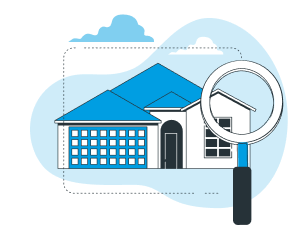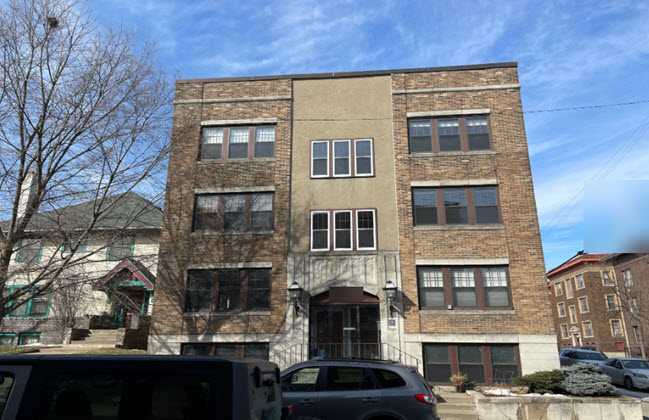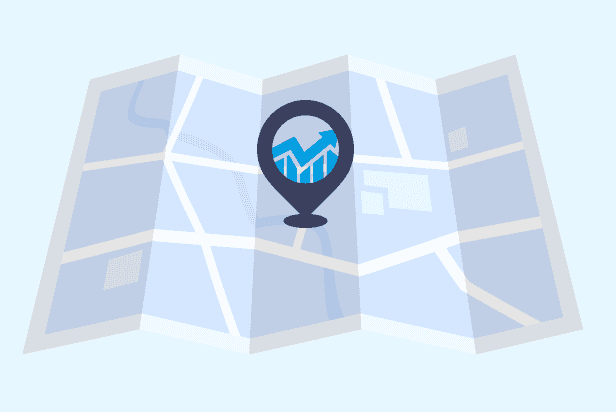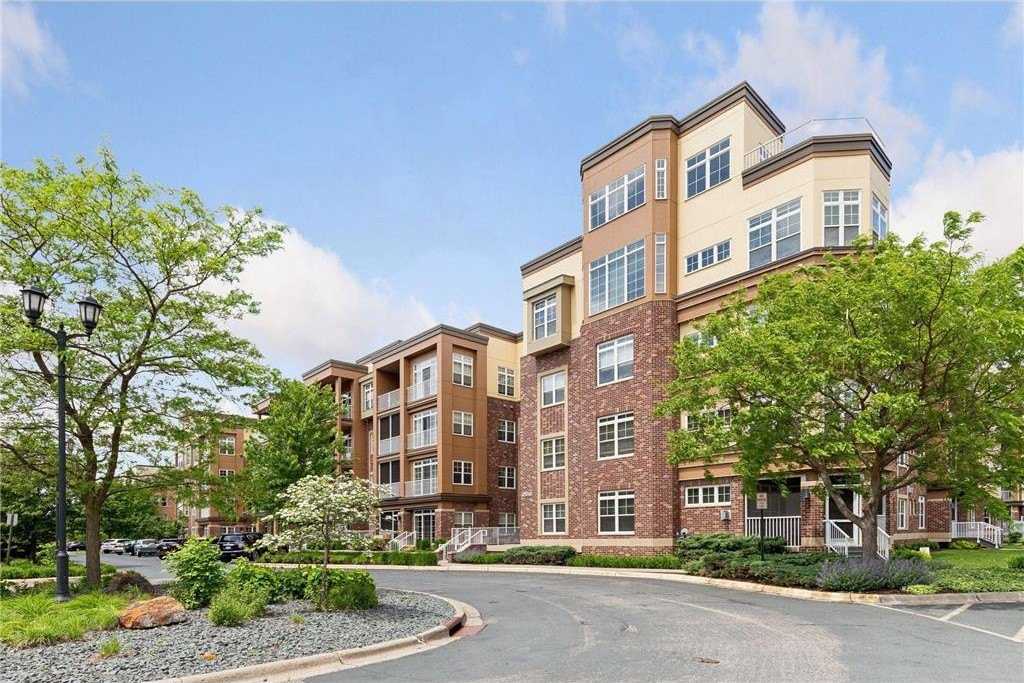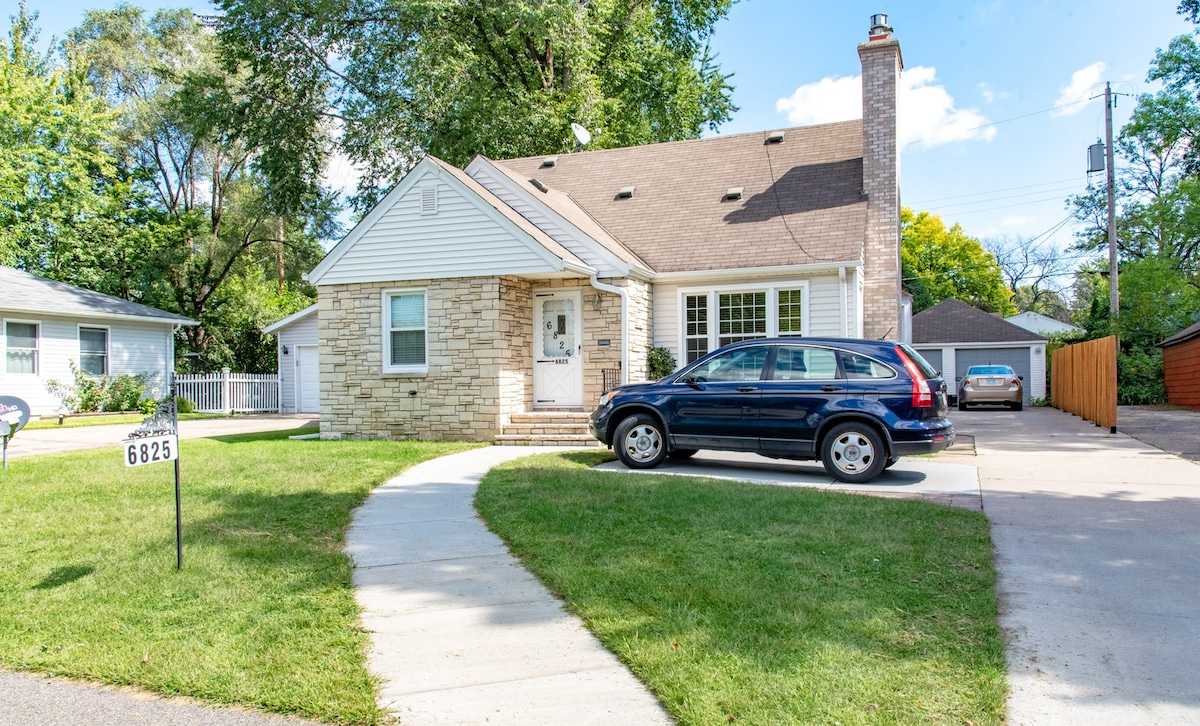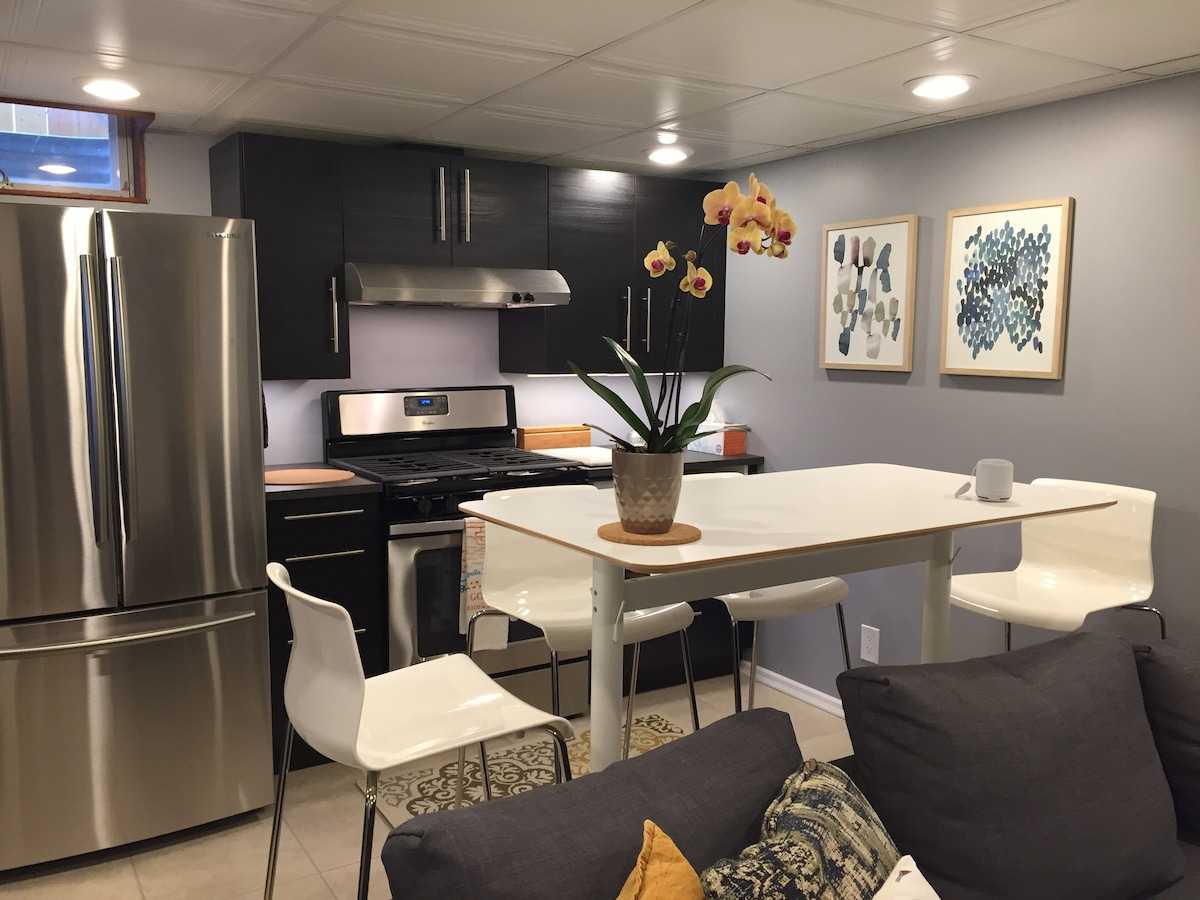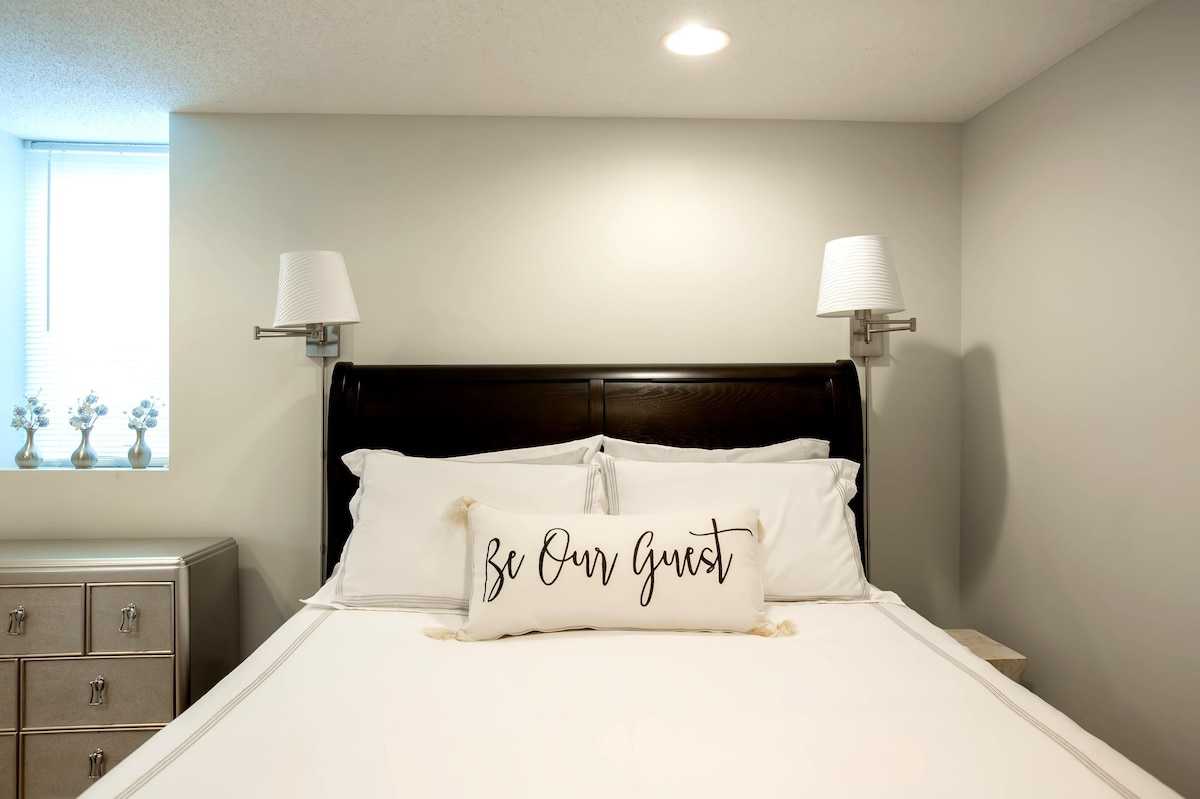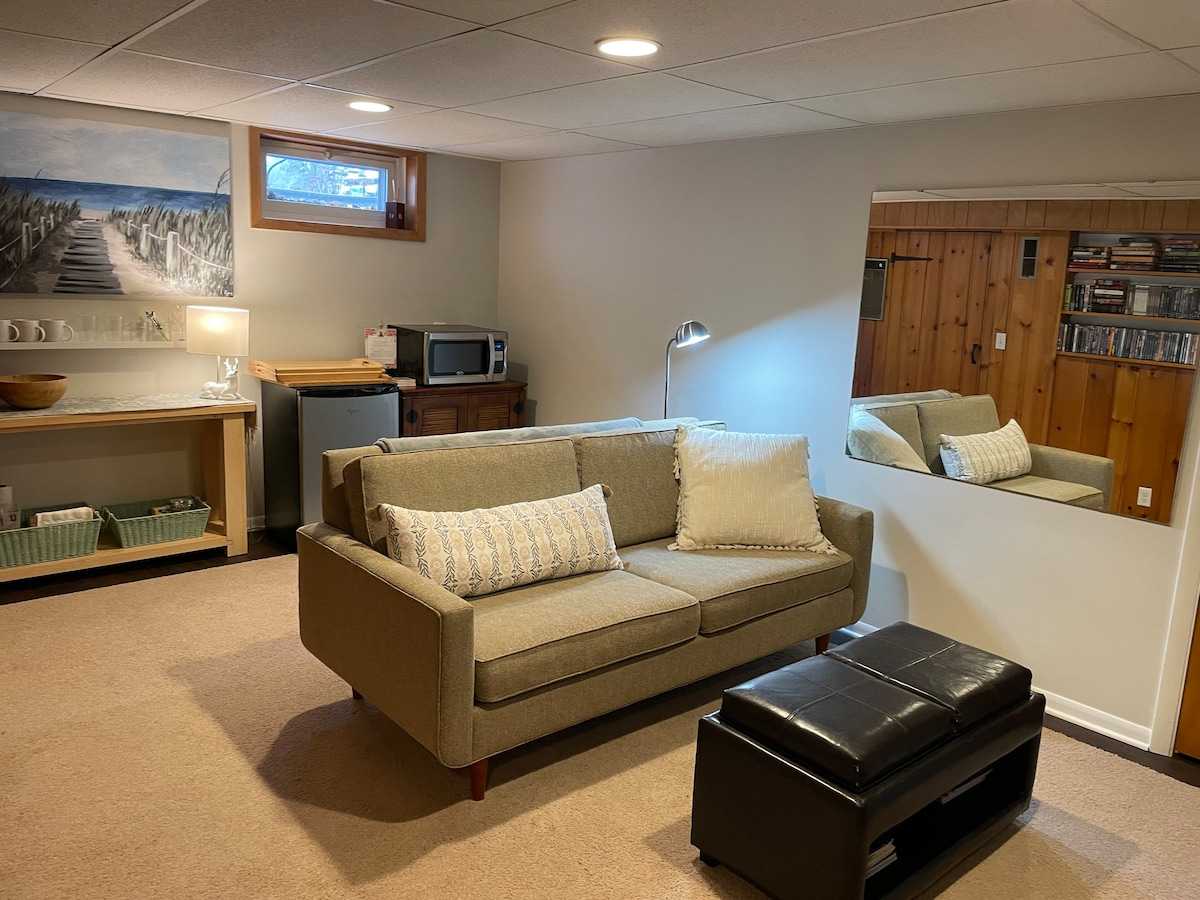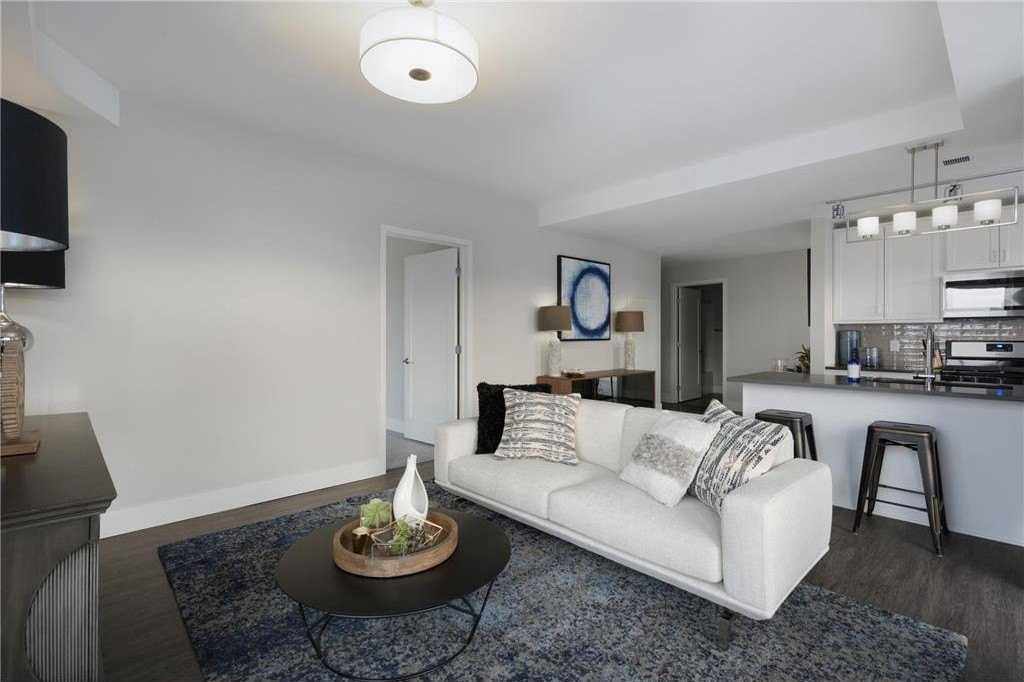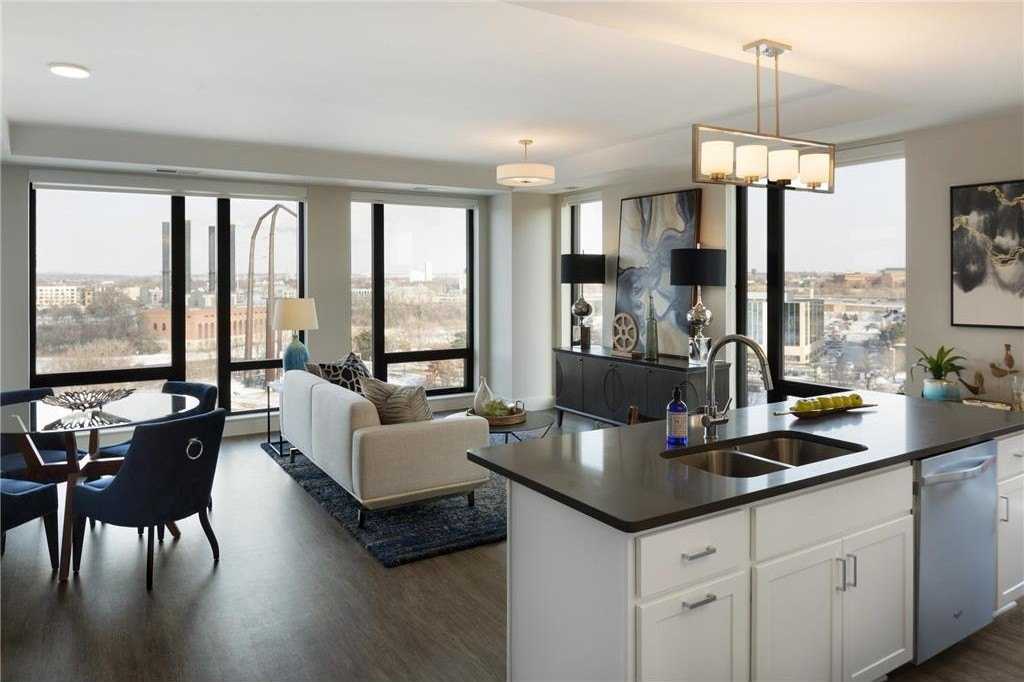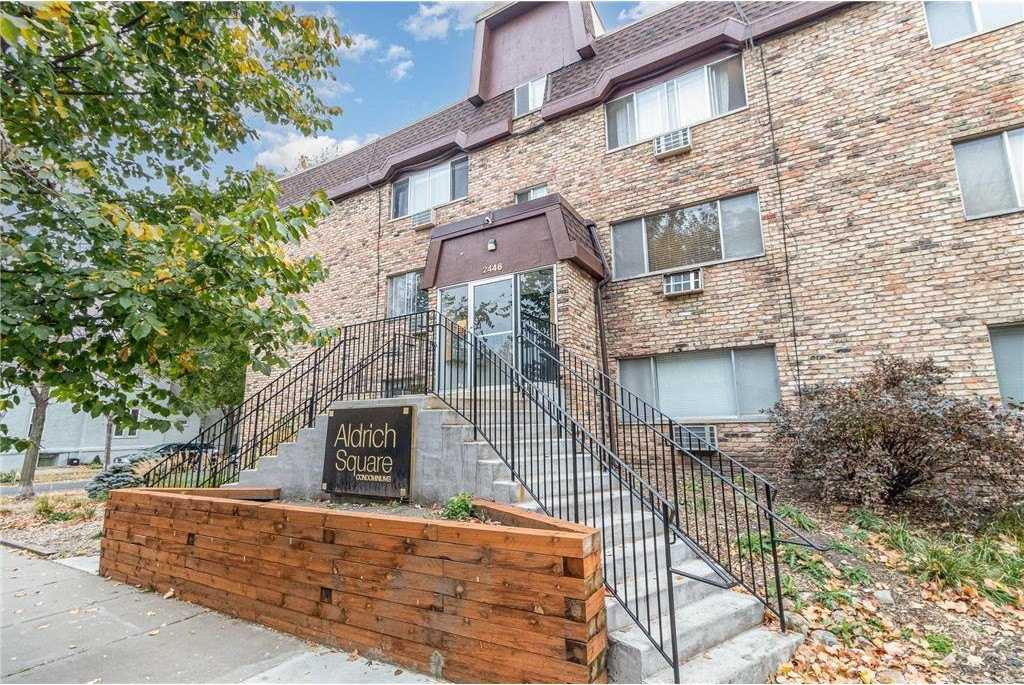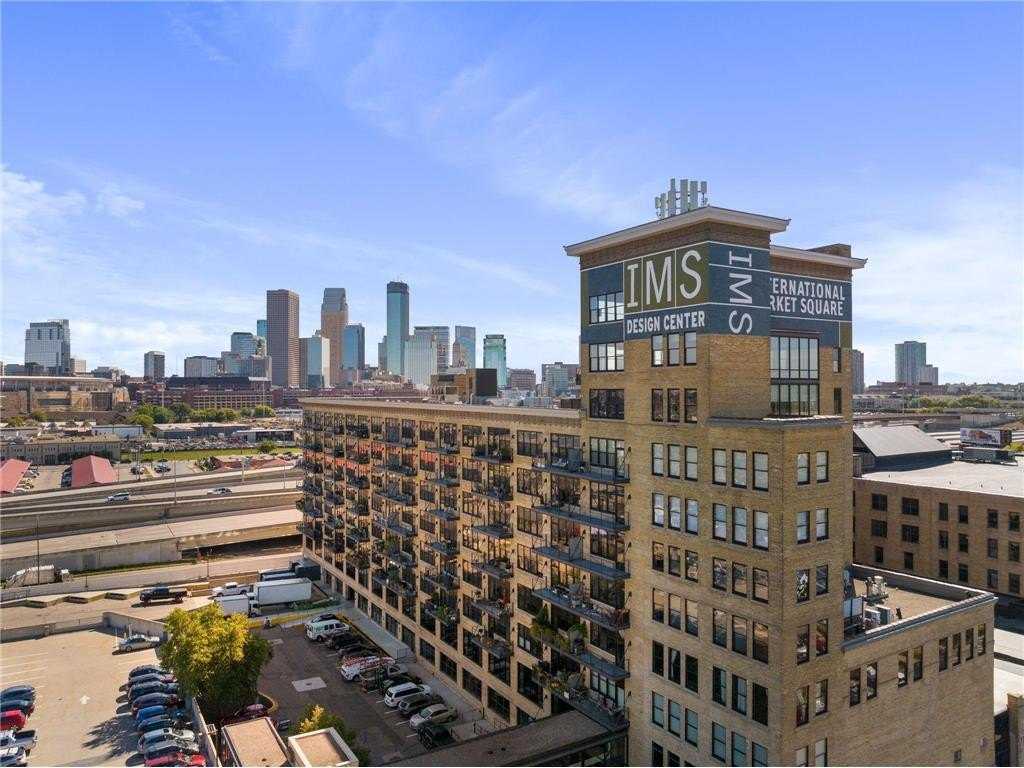
Minneapolis Real Estate Market Performance
Nestled along the Mississippi River, Minneapolis is a thriving city that stands as a beacon for real estate investors. Known for its robust economy and diverse cultural landscape, the Minneapolis housing market offers a dynamic environment for investment opportunities. As a city that blends urban living with natural beauty, Minneapolis attracts a wide range of residents, from young professionals to families, making it a versatile choice for real estate investment.
Understanding the Minneapolis Housing Market Through Numbers
The Minneapolis housing market is characterized by its steady growth and resilience. Recent statistics show that the median house price in Minneapolis is around $305,000, reflecting a year-over-year growth of approximately 6%. This consistent upward trend in property values is a clear indicator of the market's health and potential for long-term investment gains.
Moreover, the rental market in Minneapolis is equally robust, with average rental prices for apartments sitting at around $1,400 per month. This steady demand for rental properties is driven by the city's growing population and its appeal as a business and cultural hub.
Forecasting Trends in Minneapolis Real Estate
Looking ahead, the Minneapolis real estate market shows signs of sustained growth. The city's ongoing development, combined with its strong job market and quality of life, continues to draw people in, suggesting a continued rise in both property values and rental demand. For investors, this means Minneapolis is not just a current hotspot but also a promising location for future real estate ventures.
This concise overview provides real estate investors with valuable insights into the Minneapolis housing market, helping them make informed decisions based on current trends and future forecasts.
Seller’s market
Homes for Sale in Minneapolis
Find PropertiesMinneapolis, MN 55403Stevens Square
Minneapolis, MN 55419Windom
Minneapolis, MN 55408Calhoun
Minneapolis, MN 55421Waite Park
Minneapolis Homes for Sale
The market for homes for sale in Minneapolis presents diverse opportunities for buyers and investors alike. As of the most recent data, the inventory of homes for sale in Minneapolis has grown, offering a wider selection for potential buyers. This increase in available properties has brought a slight adjustment in market dynamics, leaning towards a more buyer-centric environment.
Currently, the Minneapolis real estate market is witnessing a diverse range of home styles and prices, catering to various preferences and budgets. The average listing price for homes in Minneapolis hovers around $350,000, showcasing the city's affordability compared to other metropolitan areas. This price range allows for a broad spectrum of options, from historic homes in established neighborhoods to modern apartments in the city's burgeoning areas.
The average time on market for Minneapolis homes is around 35 days, indicating a relatively quick turnover. This figure reflects a balanced market where homes are sold at a steady pace, ensuring both buyers and sellers can engage effectively. Minneapolis's appeal as a growing economic and cultural center continues to drive interest in its housing market, making it an attractive destination for homeownership and investment.
This section offers a comprehensive overview of the current state of Minneapolis homes for sale, providing potential buyers and investors with up-to-date information and market trends to inform their decision-making process.
Start your investment property search
Use analytics to find lucrative traditional or Airbnb properties in a matter of minutes.

Best Neighborhoods in Minneapolis for Buying Investment Property
Identifying the best neighborhoods in Minneapolis for investment property acquisition is key to maximizing returns. Areas like Uptown, North Loop, and Northeast Minneapolis stand out for their strong potential. Uptown is renowned for its vibrant nightlife and eclectic mix of shops and restaurants, attracting a young, dynamic demographic. Investment properties here benefit from high demand, especially for rental units, with average rents around $1,800 per month.
The North Loop, characterized by its industrial history and modern renaissance, offers a blend of luxury condos and refurbished warehouse apartments. This area, with its proximity to downtown and a plethora of amenities, is a hotspot for professionals, driving a consistent rental demand.
Northeast Minneapolis, with its artistic flair and array of breweries and galleries, appeals to a diverse population. The area showcases a mix of affordable and mid-range properties, with an average property value increase of 6% annually, making it an attractive option for long-term investment.
Each of these neighborhoods offers unique advantages for real estate investors, whether seeking rental income or capital appreciation in the thriving Minneapolis market.
Neighborhood Analysis in the Minneapolis Real Estate Market
Minneapolis Rent Prices
| RENTAL STRATEGY | STUDIOS | 1 BEDROOM | 2 BEDROOMS | 3 BEDROOMS | 4 BEDROOMS |
|---|---|---|---|---|---|
| Airbnb | $1,795 | $2,195 | $2,156 | $3,266 | $4,057 |
| Traditional | $1,230 | $1,377 | $1,856 | $2,361 | $2,821 |
Minneapolis Property Trends

The Minneapolis property market is currently experiencing a dynamic shift, reflecting broader national trends while also showcasing its unique characteristics. As of the latest quarter, the city has seen a notable increase in property listings, with a 7% rise compared to the previous year. This surge in inventory indicates a more buyer-friendly market, a slight shift from the previously tight conditions favoring sellers.
In terms of pricing, the average price per square foot in Minneapolis now stands at around $260, an increase that underscores the city's growing appeal and the high quality of living it offers. However, despite these rising costs, Minneapolis remains more affordable compared to other major US cities, offering a balanced opportunity for investors and homeowners alike.
Another key trend shaping the Minneapolis market is the gradual rise in days on market for listings. Currently, properties in Minneapolis are averaging approximately 40 days on the market before sale, which is slightly higher than last year. This shift suggests a more balanced market, where buyers have more time to make decisions, and sellers are adjusting to a less aggressive selling environment.
This detailed examination of the latest trends in the Minneapolis property market provides investors and potential homeowners with essential insights and updated statistics, enabling them to make well-informed decisions in this evolving landscape.
Minneapolis Real Estate Appreciation and Property Values
The landscape of Minneapolis real estate appreciation and property values is a testament to the city's growing appeal and economic vitality. In the recent year, Minneapolis has experienced a notable appreciation in real estate values, signifying a healthy and prosperous market. This appreciation rate, currently averaging around 8% annually, is significantly higher than in many other U.S. cities, illustrating the strength and potential of the Minneapolis market.
This surge in property values is partly attributed to the city's continuous development, burgeoning job market, and an influx of new residents attracted to its diverse lifestyle offerings. The median property value in Minneapolis now stands at approximately $320,000, reflecting the increased demand for housing in this vibrant urban area.
Moreover, the forecast for real estate appreciation in Minneapolis remains optimistic. Analysts predict a continued upward trajectory in property values, driven by the city's economic growth and its status as a desirable living and business destination. This ongoing appreciation presents a lucrative opportunity for investors and homeowners, promising substantial returns on real estate investments in Minneapolis.
This section delves into the dynamics of Minneapolis real estate appreciation and property values, offering valuable insights for those looking to invest or own property in this thriving metropolitan area.
Minneapolis Homes for Sale Below Median Price
Find PropertiesMinneapolis, MN 55403Stevens Square
Minneapolis, MN 55419Windom
Minneapolis, MN 55408Calhoun
Minneapolis, MN 55421Waite Park
Airbnb Calculator for Investment Properties in Minneapolis
For investors eyeing Airbnb opportunities in Minneapolis, an Airbnb Calculator is an indispensable tool. This calculator helps in estimating potential rental income, occupancy rates, and overall return on investment for properties in various Minneapolis neighborhoods. By inputting specific property details and local market data, investors can receive a detailed financial analysis, including expected revenue and expenses. This tool is particularly useful in a city like Minneapolis, where Airbnb's popularity varies by location and season. Utilizing an Airbnb Calculator allows investors to make data-driven decisions, optimizing their investment strategy in the vibrant and diverse Minneapolis short-term rental market.
Minneapolis Airbnb Occupancy Rate
The occupancy rate of Airbnb properties in Minneapolis is a crucial metric for investors considering the short-term rental market. Recent data reveals that Minneapolis has a healthy Airbnb occupancy rate, averaging around 65%. This rate reflects the city's growing appeal as a destination for both leisure and business travelers. Seasonal fluctuations are evident, with higher occupancy rates during summer months and special events, peaking at nearly 75%.
This steady occupancy rate is influenced by Minneapolis's diverse attractions, including cultural festivals, sports events, and a robust corporate presence. Neighborhoods close to downtown, major attractions, and business centers tend to have higher occupancy rates. Investors should note these trends when considering property locations for Airbnb investment. The consistent demand in these areas ensures a stable income stream from short-term rentals, making Minneapolis an attractive market for Airbnb investments.
Top Minneapolis Airbnb Properties
Find PropertiesMinneapolis Airbnb Investment Analysis
The Minneapolis Airbnb market offers intriguing opportunities for investors looking at short-term rental properties. Recent analysis shows that Airbnb properties in Minneapolis are gaining popularity, driven by the city's thriving tourism and business sectors. The average daily rate for an Airbnb rental in Minneapolis is around $150, with higher rates achievable in prime locations and during peak seasons.
Occupancy rates for Airbnb properties in the city average about 70%, a strong indicator of the continuous demand for short-term rentals. This demand is fueled by Minneapolis's diverse attractions, including cultural events, sports fixtures, and business conferences, drawing a wide range of visitors throughout the year.
Investors considering Minneapolis for Airbnb investments should note the city's regulatory environment. Regulations are in place to ensure a balanced approach between short-term rentals and the traditional housing market. Proper compliance with these regulations is essential for a successful Airbnb venture in Minneapolis.
Airbnb Growth and Regulations in the Minneapolis Real Estate Market

The Minneapolis real estate market has seen a significant surge in Airbnb activity, reflecting a growing interest in short-term rentals both from hosts and guests. This growth has been remarkable, with the number of Airbnb listings in Minneapolis increasing by approximately 15% in the past year. The appeal of Airbnb in the city is largely attributed to its vibrant culture, diverse neighborhoods, and major events that attract tourists and business travelers.
However, this growth has not gone unnoticed by local authorities. Minneapolis has implemented regulations to ensure that the rise of short-term rentals does not adversely affect the long-term housing market or neighborhood dynamics. These regulations include licensing requirements for Airbnb hosts, limits on the number of days a property can be rented out annually, and zoning rules that govern where Airbnb rentals can operate.
Compliance with these regulations is crucial for Airbnb hosts. It not only ensures the legality of their rental business but also maintains the quality and sustainability of the housing market in Minneapolis. Investors and hosts need to stay informed about these regulatory changes to effectively navigate the Airbnb landscape in this dynamic real estate market.
Minneapolis Rental Properties and Rent Prices
The market for Minneapolis rental properties is evolving, reflecting a balance between demand and supply. In the current landscape, the average rent price in Minneapolis stands at around $1,600 per month. This figure varies depending on the location and type of property, with downtown apartments and properties in sought-after neighborhoods commanding higher rents.
The rental market in Minneapolis is characterized by its diversity, offering everything from high-end apartments to more affordable units. This range caters to a broad spectrum of renters, from young professionals and students to families. The demand for rental properties remains strong, driven by the city's growing population and its reputation as a major educational and business hub.
Investors looking at Minneapolis rental properties can expect a steady rental yield. The city's rental market has shown resilience, with a consistent demand ensuring a stable income stream for property owners. The forecast for rent prices in Minneapolis suggests a steady increase, aligning with the city's economic growth and the ongoing development of new residential areas.
This comprehensive overview of Minneapolis rental properties and rent prices provides valuable insights for investors and renters, highlighting the current state and future prospects of the rental market in this dynamic city.
Traditional Rental Properties in Minneapolis
In the realm of traditional rental properties in Minneapolis, the market exhibits stability and potential for steady returns. These properties, which include single-family homes, townhouses, and classic apartments, cater to a segment of renters seeking long-term housing with a sense of community and familiarity.
Currently, the average rent for traditional rental properties in Minneapolis is approximately $1,700 per month. This figure reflects the demand for quality, family-oriented living spaces, especially in residential neighborhoods that offer a blend of urban accessibility and suburban comfort. Such properties often feature added amenities like yards, garages, and community spaces, which are highly valued by long-term residents.
The occupancy rates for these traditional rentals remain high, hovering around 95%. This strong occupancy indicates a consistent demand, providing landlords and investors with a reliable income source. Additionally, the year-over-year rent increase for these properties is approximately 5%, suggesting a healthy, growing market that aligns with the overall economic growth of Minneapolis.
Minneapolis Homes for Rent
Find PropertiesMinneapolis Transportation
Transportation in Minneapolis is a major factor influencing real estate decisions. The city boasts an efficient public transit system, including buses and light rail services that connect key areas. The Metro Transit's Blue and Green light rail lines link downtown Minneapolis with suburbs and major destinations, like the MSP Airport and Mall of America. Additionally, the city's bike-friendly nature, with extensive bike lanes and trails, adds to its appeal. This well-connected transportation network enhances the attractiveness of properties in Minneapolis, ensuring easy access to amenities and workplaces, crucial for both residential and commercial real estate investments.
Amenities in the Minneapolis Real Estate Market
Educational Facilities
Educational Facilities in Minneapolis
Minneapolis boasts an array of educational facilities, contributing significantly to the city's appeal for families and students. The city is home to a variety of high-quality schools and higher education institutions, offering excellent academic and extracurricular opportunities.
Top 5 Schools in Minneapolis:
- Southwest High School - Known for its strong academic programs.
- Washburn High School - Offers a diverse curriculum and extracurricular activities.
- South High School - Renowned for its arts and science programs.
- Edison High School - Features a robust technology and engineering curriculum.
- Minneapolis Washburn - Prominent for its inclusive education approach.
Top 5 Colleges and Universities:
- University of Minnesota - A leading public research university.
- Minneapolis College of Art and Design - Specializes in art and design education.
- Augsburg University - Offers a wide range of undergraduate and graduate programs.
- North Central University - Known for its liberal arts education.
- Minneapolis Community and Technical College - Provides a variety of vocational and technical courses.
These educational institutions enhance the city's intellectual and cultural landscape, making Minneapolis an ideal location for academic pursuits.
Banks
Banks in Minneapolis
Banks in Minneapolis play a pivotal role in supporting the city's thriving real estate market and broader economy. They offer a range of financial services, from mortgage lending to investment advice, essential for both individual homeowners and real estate investors. Minneapolis is home to several reputable banking institutions, each providing unique financial solutions.
Top 5 Banks in Minneapolis:
- U.S. Bank – Known for its extensive branch network and customer-focused services.
- Wells Fargo – Offers a wide range of financial products with a strong presence in the area.
- TCF Bank – A regional favorite, known for personalized service and community involvement.
- BMO Harris Bank – Provides a mix of personal and commercial banking solutions.
- Associated Bank – Recognized for its mortgage services and local market expertise.
These banks are integral to Minneapolis’s financial landscape, aiding in the city’s economic growth and stability.
Healthcare Facilities
Healthcare Facilities Minneapolis
Minneapolis is renowned for its exceptional healthcare facilities, offering top-tier medical services and advanced care. The city's healthcare system is a critical factor for residents and contributes to the overall quality of life.
Top 5 Hospitals/Healthcare Centers in Minneapolis:
- Mayo Clinic - Globally acclaimed for its research and treatment facilities.
- Abbott Northwestern Hospital - Known for its comprehensive medical services.
- University of Minnesota Medical Center - A leading research and teaching hospital.
- Hennepin Healthcare - Offers a wide range of specialties and community health programs.
- Children’s Minnesota Minneapolis Hospital - Specializes in pediatric care and advanced treatments.
These healthcare institutions not only provide excellent medical care but also contribute significantly to Minneapolis’s reputation as a city focused on health and wellness.
Start your investment property search
Use analytics to find lucrative traditional or Airbnb properties in a matter of minutes.
